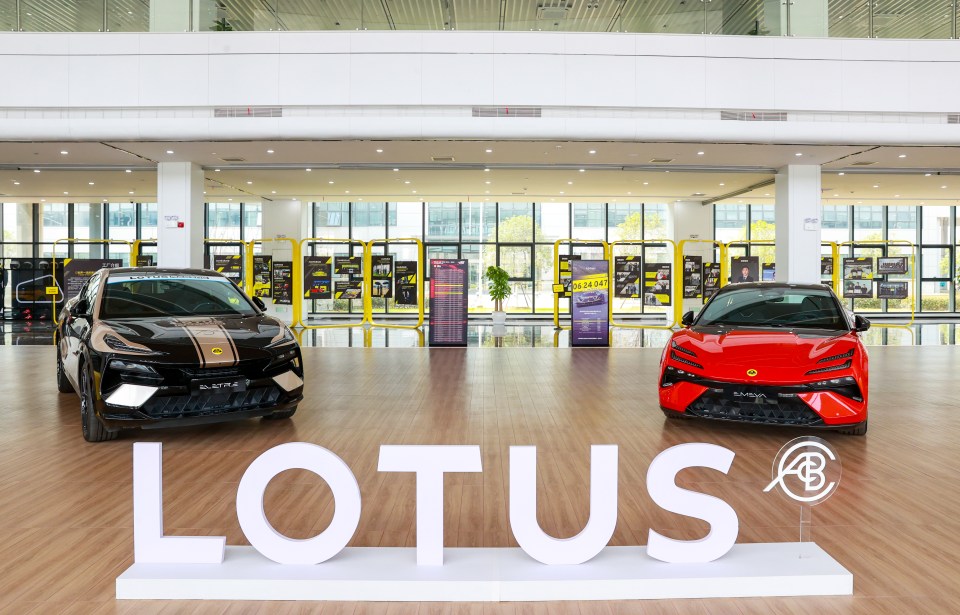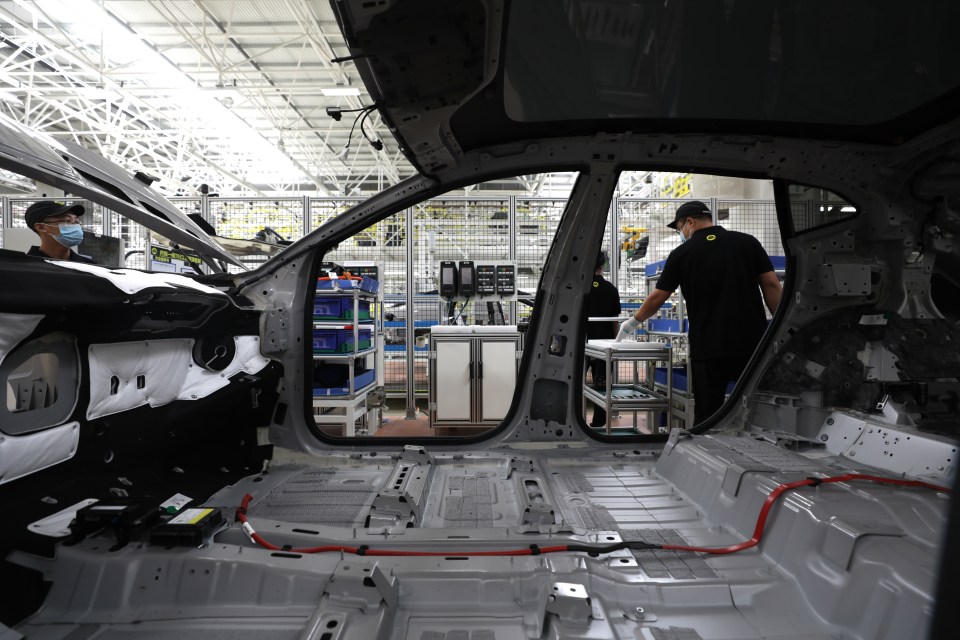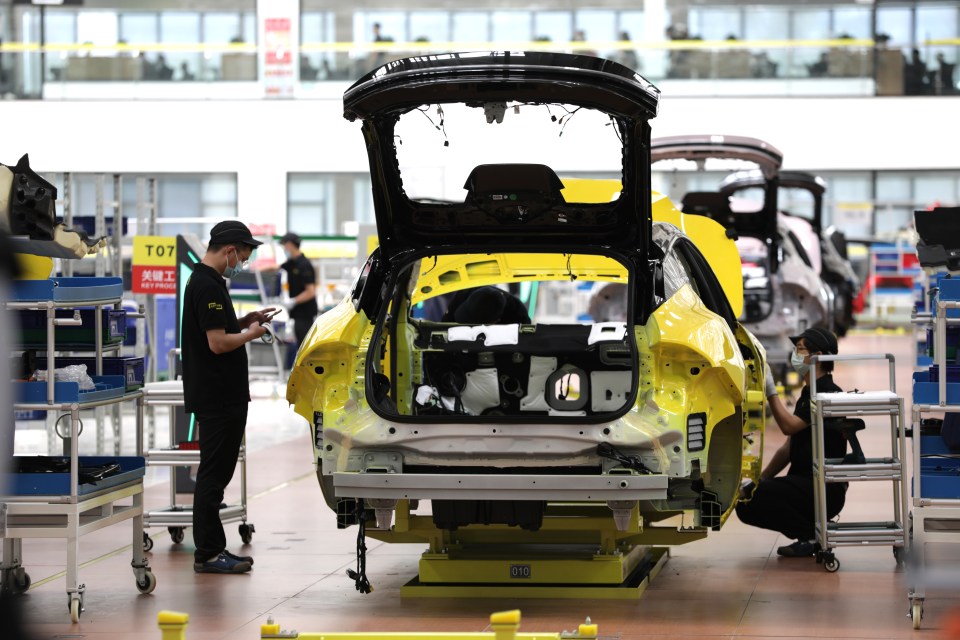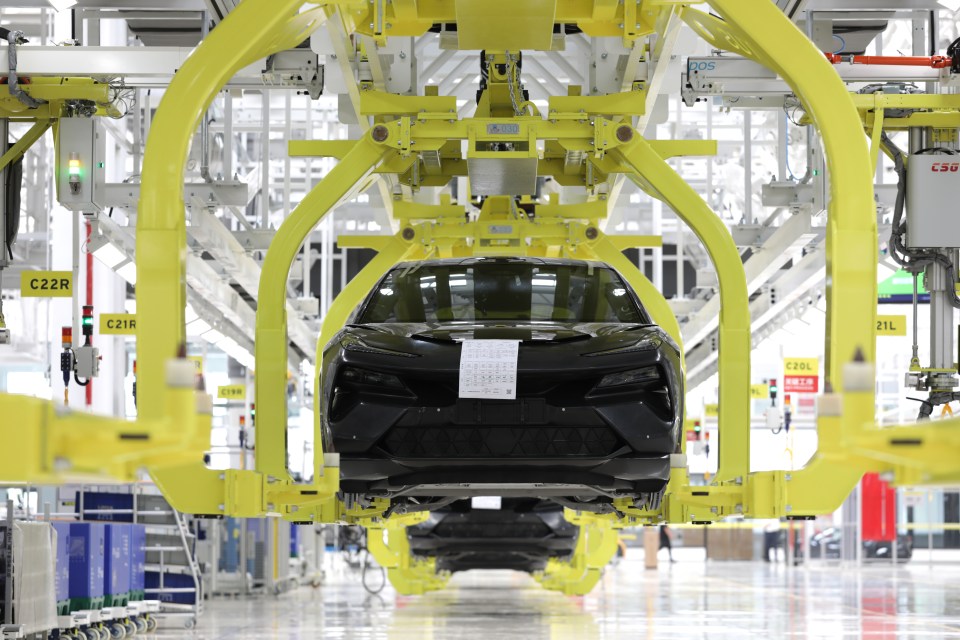A MAJOR British car firm is undergoing a reshuffle days after axing hundreds of jobs in a battle to stay alive.
The Lotus Group, located near Wymondham, Norfolk, is preparing to bring its businesses back under one roof as part of a major reorganisation.
As reported by Car Dealer, current owner Geely International has triggered a 2023 agreement which forces Lotus Technology Inc to buy back 51 per cent of Lotus Advanced Technologies.
The move, described as a “strategic transaction”, will see Lotus unite its operations and financial results into one single business.
The buyout will be a non-cash deal, based on a pre-agreed price set in a Put Option Agreement signed last year.
The green light depended on selling over 5,000 cars in 2024, a target the firm has already smashed.
Lotus Technology, which has operated separately since Geely’s involvement in 2017, will absorb the remaining parts of the company.
Currently, Geely owns 51 per cent of Lotus, with the other 49 per cent held by Malaysian group Etika Automotive.
Qingfeng Feng, Senior Vice President of Geely Holding Group and CEO of Group Lotus, said: “This acquisition marks a critical milestone in our strategic journey to fully integrate all businesses under the Lotus brand.
“It will strengthen brand equity and enhance our operational flexibility and internal synergies.
“We are confident that the transaction will create substantial long-term value for our shareholders.”
The deal is expected to be completed in 2025.
It comes just days after the brand revealed it would axe up to 270 jobs, blaming “volatile” market conditions and growing pressures from global trade tensions.
Online car sales, rising operational costs, and the shock introduction of new US tariffs have rocked the industry.
President Donald Trump’s 25 per cent tax on imported cars, which kicked in from April 2, has piled extra pressure on British manufacturers.
The UK sends about a sixth of its cars to the US every year, worth £8 billion, including popular models like Minis, Range Rovers, Aston Martins and McLarens.
Prime Minister Sir Keir Starmer has vowed support for the sector but concerns still run deep among workers and manufacturers.
A spokesperson for Lotus said: “The proposed restructuring is vital to enhance our competitiveness in today’s market.
“Lotus Cars has announced a proposed business restructure to ensure sustainable operations, amid volatile and evolving market conditions including the US tariffs and shifting consumer demand for sports cars.
“The company plans to increase synergies across the wider Lotus brand and with its largest shareholder and technology partner, Geely Holding Group.
“It will look at greater resource sharing and collaboration in technology, engineering, and operations.”
Despite the shake-up, the firm insists it remains “committed to the UK” and its historic Norfolk headquarters.
Why are so many car dealerships closing down?
By Summer Raemason
According to Business Rescue Expert there are multiple reasons why car dealerships are folding across the UK.
The first major factor is rising online car sales which are beating in-person sales at dealerships.
With an extensive range of comparison and second-hand sites to chose from, may car buyers don’t even step foot into a dealership anymore.
Secondly, the actual cost to physically run the sites has soared.
Rent, wages and energy bills have all been increasing for roughly the past five years, putting many out of pocket.
Car manufacturing across the globe was also hit by a semiconductor chip shortage in 2022 which made it difficult to produce new motors.
The high demand with limited supply created a backlog, which although has eased, is still having an impact on the industry.
A third reason for recent closures is the shift to electric cars.
They are becoming more popular, given the Government initiative to be Net Zero in 2050.
The industry is also affected when companies merge or are bought by rivals.
This may lead to some independent names falling victim to the ongoing spate of closures.










